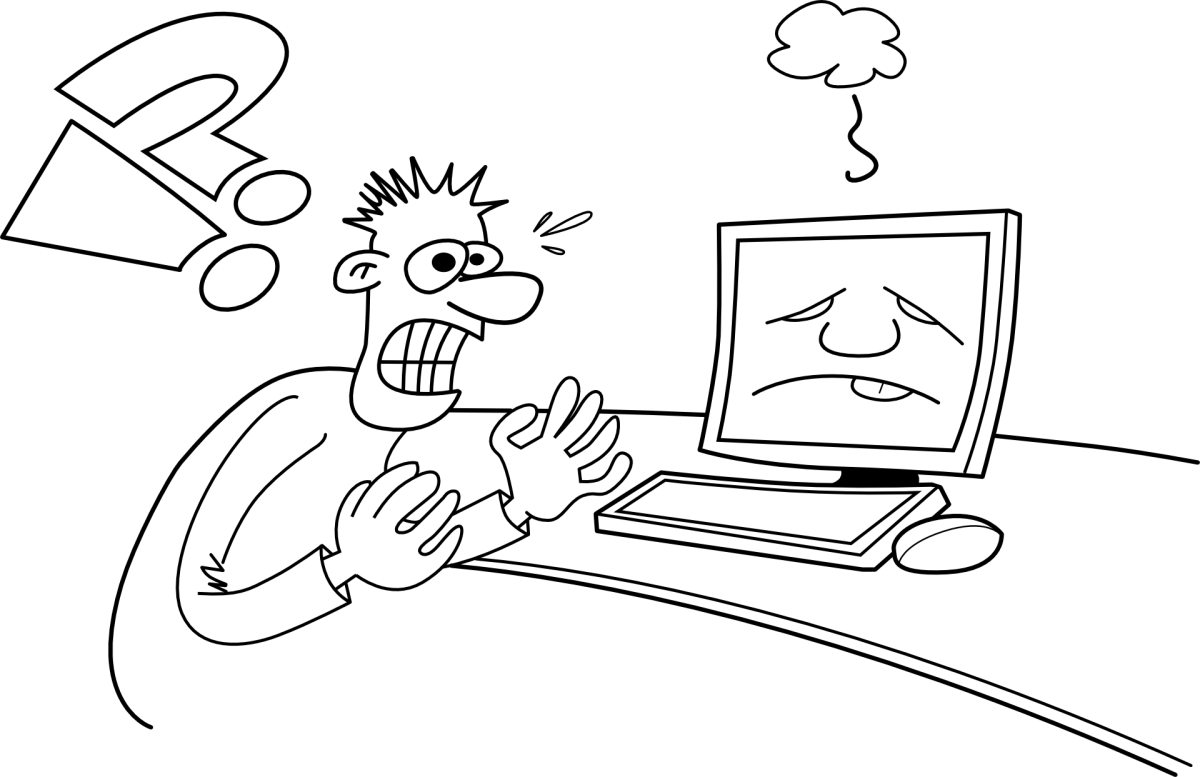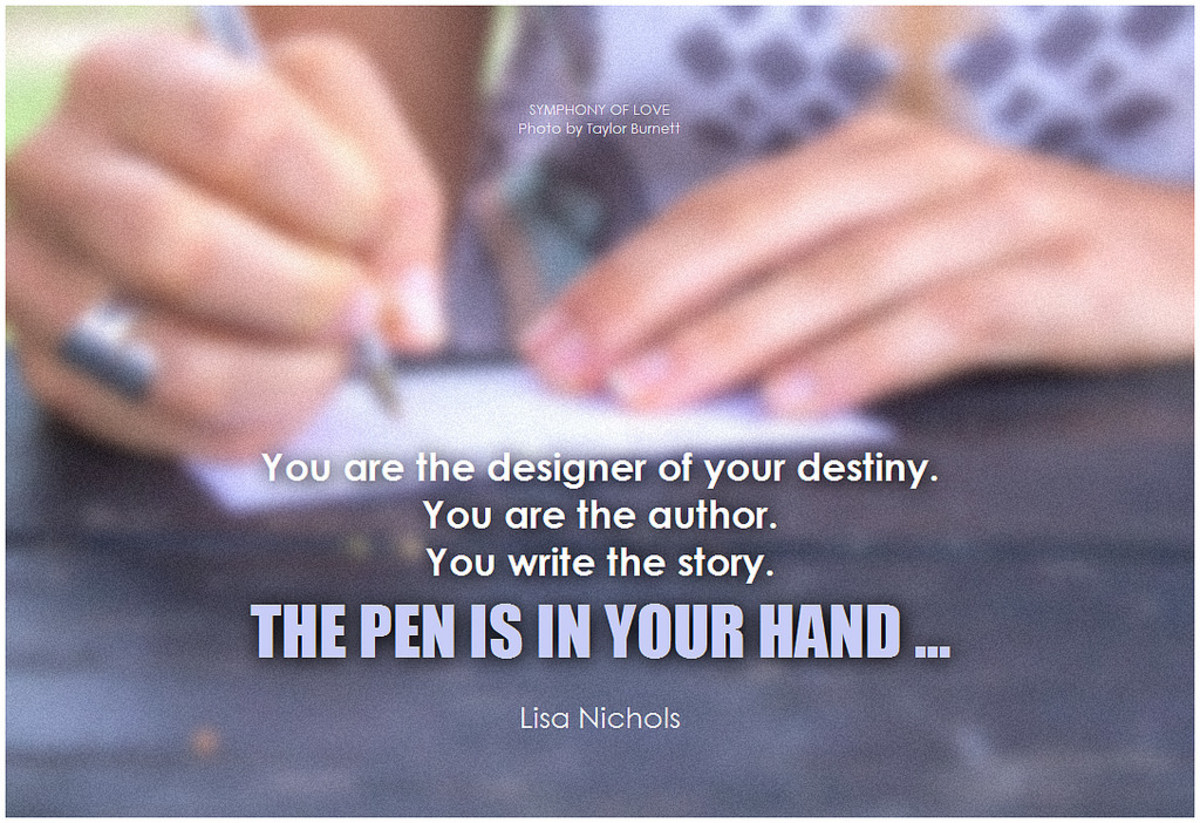Handy Methods For Outlining Your Non-Fiction eBook

Have you written a book or ebook?
Why Bother To Outline?
It might seem like an unnecessary preliminary to beginning your book, but as many non-fiction authors will tell you, outlining your book is a really valuable part of the process. Rather than adding more work to your to-do list, surprisingly outlining a book can greatly reduce the amount of work you will need to do on your book.
For many people who are planning to write a short book - especially a short ebook - the content an layout of the book can seem pretty self-evident in their minds - but the truth is that for most people this will not turn out to be the case when they begin writing.

Concepts can seem far more fleshed out in our minds than they really are and when we attempt to put them on paper, all too soon it can become apparent that we haven't really 'thought this through'.
That is really what the outlining is all about - giving yourself the opportunity to methodically 'think it through', and record these thoughts as a reference point for when you actually begin to write the book.
Mind Map It

Mind mapping is one of the most common ways of getting all your ideas onto the page logically and in a way that is related to all the other ideas around it. It is a great approach - whether you are trying to flesh out a particularly complex chapter - or outline an entire book.
Mind mapping is actually a popular study tool as it helps to organize information into an ordered form that is easy to understand in relation to other associated information.
Because of all the above, the mind map strategy is a great method to use if your ebook is a particularly complex and long one. Conveying some non-fiction book ideas logically can be as difficult as navigating the complicated plot of a fiction novel.
Mind mapping is a very visual exercise and lends itself to a big piece of paper and a marker or a mind mapping software - these are available for computers and android devices.
It's Easier To Show You Mind Mapping Than Try to Explain It Further...
- 8 Free Mind Map Tools & How to Best Use Them
For an office worker, a mind map can be a solo brainstorming tool or a collaborative idea collection. In the right hands, a simple mind map can help make better decisions.
Brainstorm Chapters
This is a super-simple way to approach outlining shorter simpler books. Simply figure out the sort of chapters you want your book to be made up of. Then work out the appropriate sub-chapters that fall within each chapter.
This might sound over-simple - and perhaps not even worth the effort, but just seeing all the sections laid out particularly helps in arranging similar ideas together and ordering your chapters logically.
If you are really feeling uninspired, it can be hard to even come up with chapter headings. In that case, you need to take a small step backward and immerse yourself in the topic of your proposed book. Head to the library, get on Google, watch some videos on the topic and just refresh yourself on the topic.

Have your notepad near as chapter headings will soon begin to occur to you. Don't concern yourself with getting things in the order right - just get the idea down. Later in the process, you can rearrange the headings - and some headings will become sub-sections within chapters. Other headings might be completely eliminated later. That's fine - the idea is simply to allow some shape to form around your book idea and for you to gradually build up content, beginning with a few major points and working from there.
Other headings might be completely eliminated later. That's fine - the idea at this stage is simply to allow some shape to form around your book idea and for you to gradually build up content, beginning with a few major points and working from there.
Once you have that you will find that you will naturally begin to refine your brainstorm. Remember, you can get as detailed as you like. You may begin with naming chapters and sub-headings within those chapters. But once that is completed you may then choose to go on to further brainstorm what you will address within each paragraph of a sub-section.
You definitely don't have to take this process to that level of detail, but the option is there if you feel like it assists the outlining process.
What has appealed to you most about your favourite non-fiction books?
Reverse Engineer
You know how there are some books that you remember because they were just ' right'. The right length, a message that spoke to you, great personal stories from the author that personalised the message. Well,think about the message that your book is trying to convey to your readers. Then think about how you want them to feel about the message and what you want to emphasize. For example, if your book is about Self Development, think about what writing styles make you feel motivated to set goals and show initiative. If you shared your own failures do you think it would encourage your audience?
Well,think about the message that your book is trying to convey to your readers. Then think about how you want them to feel about the message and what you want to emphasize. For example, if your book is about Self Development, think about how you want to greet your readers. Will it be by making a connection with them through an anecdote? Or maybe appealing to their own dream and goals?
How about the main content of the book - is it meant to inspire, direct or caution? If caution, then how would you best achieve that? By appealing to their logical brain with facts? Or to their emotions with a cautionary tale? Put yourself in the readers position. Think about how you want them to feel and respond - and write to achieve those ends.
Of course it is key that you understand your target audience so that you will correctly be able to predict what l appeal to them.

Outline by Numbers
First just figure out how long you want your manuscript to be. Maybe you want a 14,000-word ebook. From there, work out how much of your word count you can reasonably dedicate to each section of the book.
You might first allocate 1000 words for the Introduction and another 1000 for the conclusion. That would leave you with 12000 words left. Are you likely to want just a few meaty chapters? Or would you prefer a lot of shorter chapters?
If the latter, you might consider 6 chapters with an average of 2000 words each. From there, further break it down into sub-sections within chapters if you feel you need to,
What this approach does is it allows you to get your head around the portion of writing that you need to do in a sitting. Instead of seeing the book as a whole project that you need to create and organize, 'chunking' the process by separating it into manageable pieces allows you to tackle each portion like an individual writing project.
Each chapter is like writing a long blog post or article. If further broken down, it will be the length of a Microsoft Word document - or less.

One More Reason To Outline Your eBook...
Many first-time authors find it difficult to get their first book completed. There is alot of doubt and uncertainty involved in the book-writing process and there are endless opportunities to bail on the process - many would-be writers do.
The fact is that as writers, we need all the help and encouragement we can get to meet our writing goals - particularly at the outset. Why? Because, once we achieve a few initial goals - like writing our first book - or publishing our first article in traditional media, we step up a level in confidence. Long held ambitions become reality - and it makes our goals that much more real and achievable to us.
Outlining your ebook is part of this self-encouragement process. It is a simple exercise - but if done thoroughly, and with attention, it helps to start giving form to a nebulous idea. It helps to make completing your book achievable.
Best wishes in your book-writing endeavours!
Further Reading for Writers:
- Write For Weekendnotes - A Surprisingly Unheard of Platform For Writers
Weekendnotes is the site that those who have struggled to earn on content mills have been looking for. My earnings on this platform are better than any other site of it's kind - but quality is key. - 12 Tips For Writing Your First Weekendnotes Article
Weekendnotes is the best online writing platform that I know of. These tips will guide you in getting the most out of this online platform from the very start.








